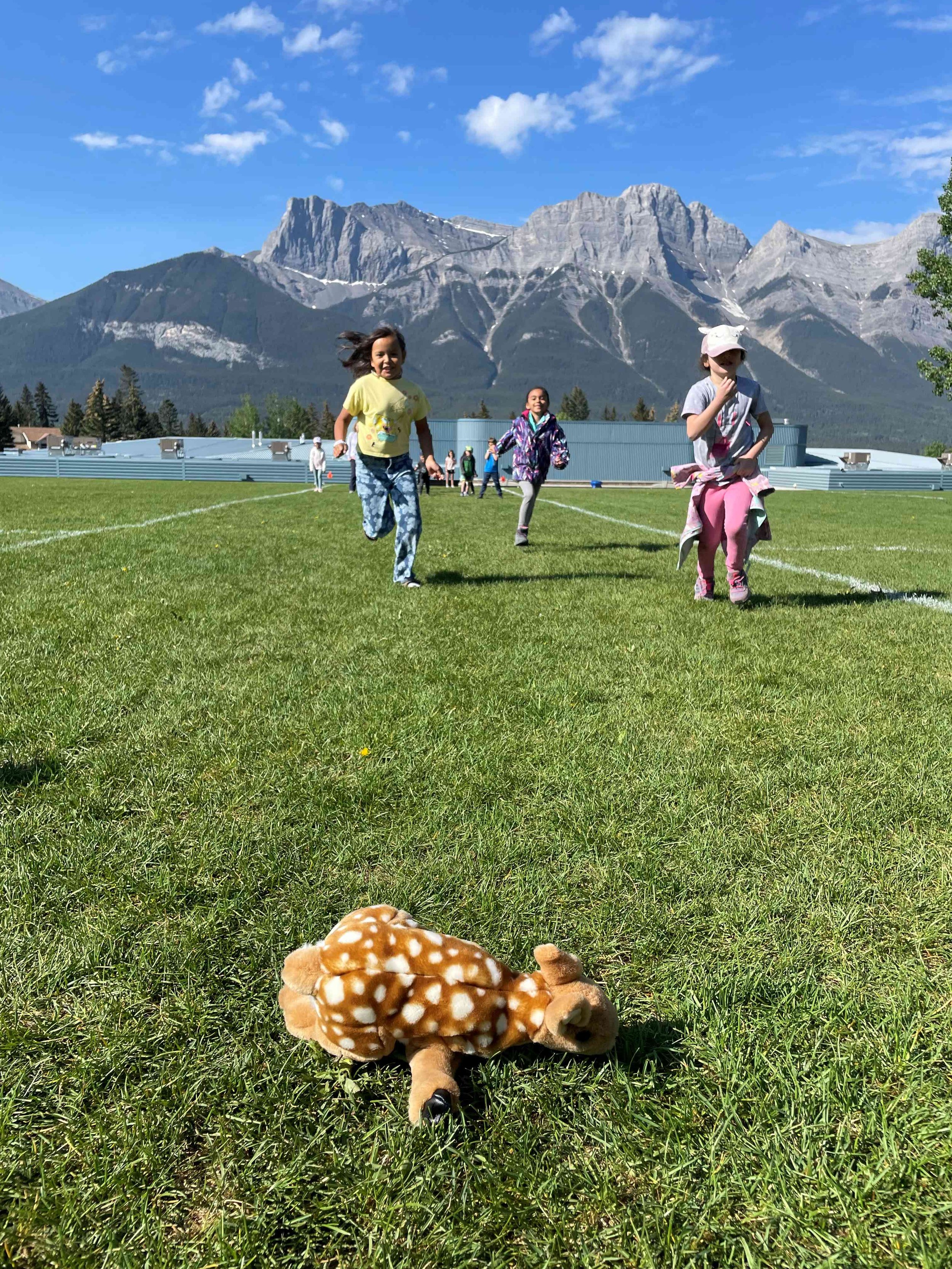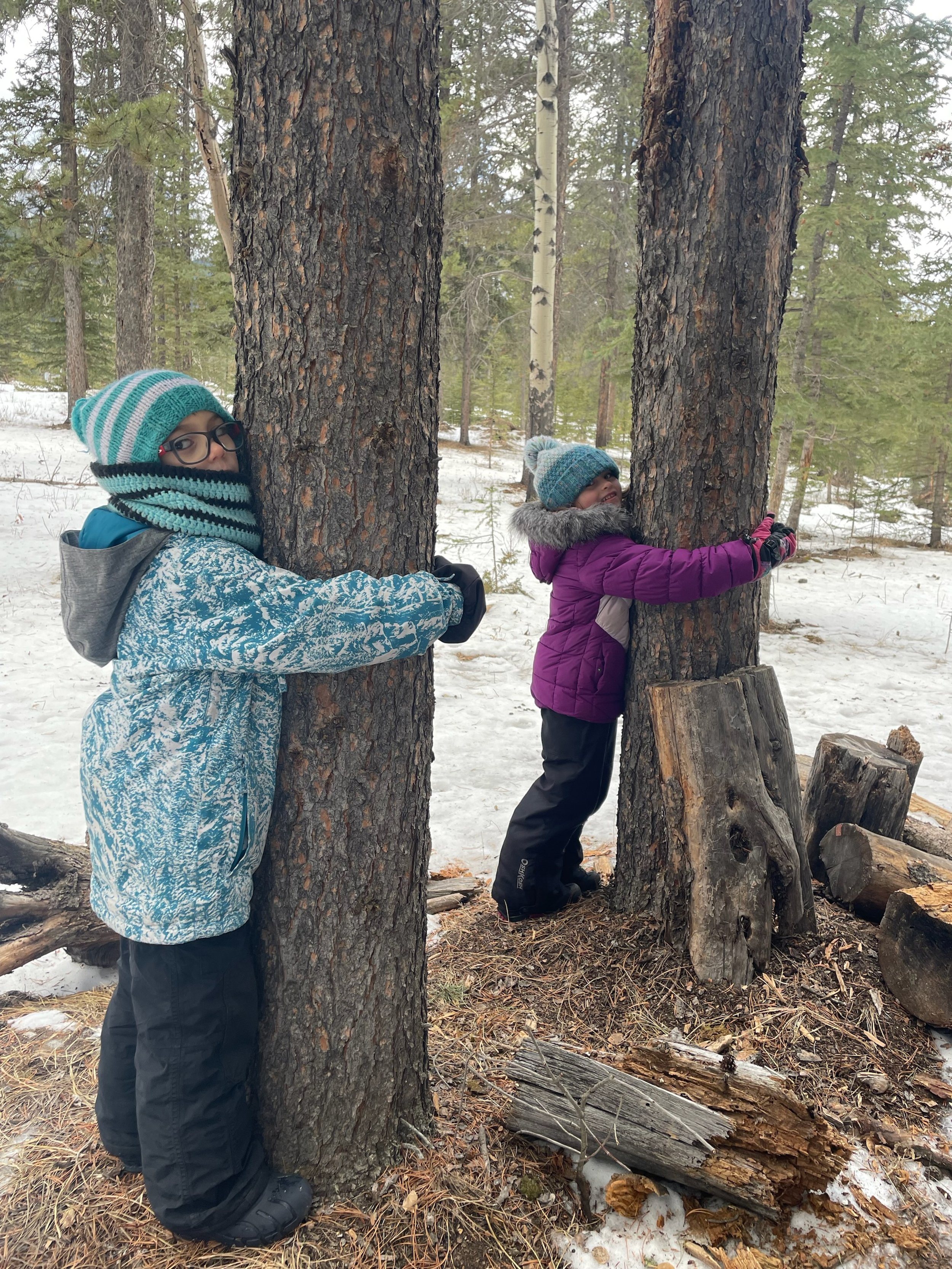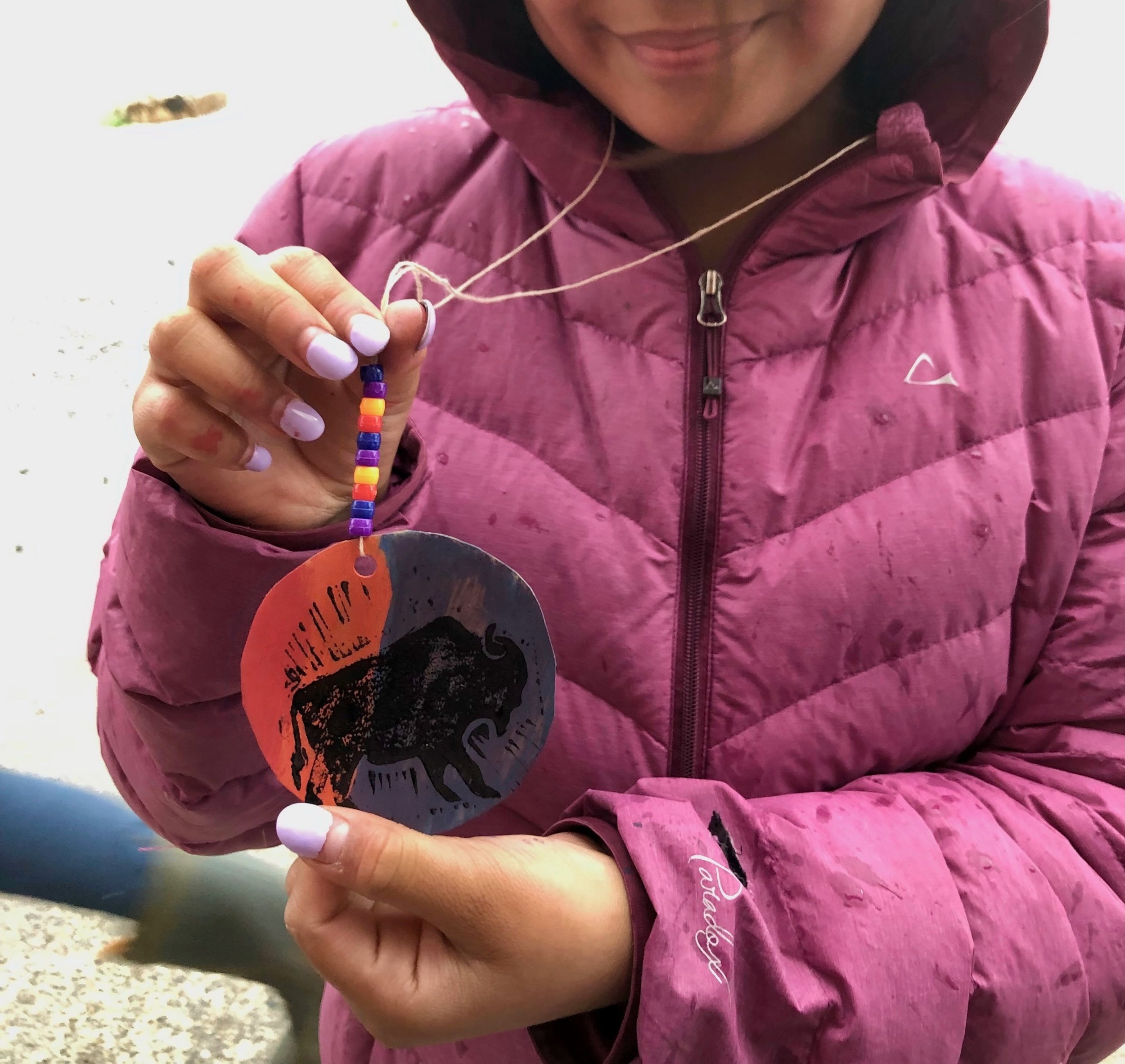LESSON PLANS
Future Leaders is our environmental education program for students, teachers and youth of the Bow Valley.
Are you looking to connect your classroom to the environment? Ever wondered how learning can be applied to the community? The lesson plans from Future Leaders tie the Alberta K-12 curriculum to environmental topics such as wildlife, climate change and ecology that are relevant in the community of the Bow Valley. We encourage you to recreate these lessons!
To book a session with an educator to deliver in the classroom or outdoors, email education@biosphereinstitute.org.
KINDERGARTEN
Science - Earth Systems
Using all five senses, let’s explore the wonders of the natural world! Through a series of outdoor games, educational stories and interactive activities, the budding scientists will experience local natural areas, follow their curiosities, ask questions and explore the concept of respect.
grade 1
Science - Earth Systems
Crawl like a Cougar, listen like a Deer, create nature art - all without leaving the vicinity of the school grounds! Students will experience the benefits of spending time in nature, learn about local wildlife and come to understand how to reciprocate the gifts of nature.
grade 2
Science - Living Systems
Through a combination of outdoor games, oral stories, activities, discussion and connected projects, students will explore Living Systems in a nearby nature. Students will develop a deep appreciation and understanding of the interconnections in the natural world.
GRADE 3
Science - Earth Systems
Participate in the magical world of Worms, soil and composting! The students transform into scientists who monitor their own Worms, feed them organics and observe the transformation of food waste into worm castings that can be fed to plants - and then eating the plants!
GRADE 4
Social Studies - Time and Place
It sounded like distant thunder. What was once a loud presence of 30,000,000 Bison was silenced by the end of the 1800s. But the return is here! Through a series of classroom sessions, students will explore Bison artefacts and learn the “Ways of the Bison” from settler and Indigenous perspectives. Each class will learn about the ecological significance of this keystone species.
GRADE 5
Science - Wetland Ecosystems
Mi’kmaq Elder Albert Marshall coined the English phrase ‘two-eyed seeing’ to describe an approach in education that combines Indigenous and Western perspectives. Together with Future Leaders and members from the neighbouring Îyarhe Nakoda nation, students will learn about the significance of Spring to Stoney culture as well as local ecology. A subsequent field trip to study wetlands at Quarry Lake Park will be an afternoon walking tour to inform multilingual posters to demonstrate student learning.
Photo: Mountain Blue Bird, Miles Tindal
GRADE 6
Science: Air and Aerodynamics
Why do some birds soar effortlessly and others flap relentlessly? The adaptations of flight in the Bird world can help us understand the properties of air and its interactions with objects in flight. Taking after the feathered friends, students will learn about wing anatomy, physical adaptations for efficient birds in flight and how air supports materials in flight. To apply their learning, students will design an imaginary net-zero aircraft based on what they know about airfoils and the Bernoulli principle. Their design will be demonstrated on a poster and used to inform building a model aircraft.
GRADE 7
Science: Interactions and Ecosystems
As an expression of the natural world, humans have coexisted as ecosystem stewards since time immemorial. To foster an understanding of ecosystems, this unit develops student awareness of ecosystem components and interactions, as well as natural cycles and processes of change. With a focus on the changing climate linked to damaging human behaviour, students will engage in a positive behaviour change action project to become ‘Climate Stewards’. From anti-idling awareness and climate songs to garbage cleanups and promotional posters for climate stewardship, students are supported in creating and implementing their project ideas in their classroom, schools and community.
GRADE 8
Science: Fresh and Saltwater Ecosystems
Water is all around us - and within us. The human body is made up of as much as 60% water! From our drinking and bathing water to the water that feeds our food and drains our plumbing, humans rely on water. And we’re not the only ones! Students will explore nearby parks, forests and neighbourhoods to trace the route of water through an ecosystem and which organisms rely on it. The nearby nature study culminates in an action project of painting local stormwater drains with yellow fish and distributing public education flyers.
GRADE 9
Science: Biological Diversity
We are all interconnected; we breathe in what plants breathe out, we drink water that was once in a rain cloud, we eat food produced from plants converting the sun's energy. The connections between humans, non-humans and Earth's processes are endless. Through a series of outdoor games, activities and hands-on learning projects, students will learn the concepts of ecosystems, interdependence, biodiversity, habitat and how they can support healthy ecosystems. The learning culminates in a hands-on project of one of the following two projects to support biodiversity: building and installing bird nesting boxes or planting and tending to local plant species.
GRADE 10-12
CTS: Environmental Stewardship
In this three module Career and Technology Studies (CTS) course, students learn about local ecology and how to foster stewardship in their community. The course culminates in a community action project to turn their learning into impact!
future leaders youth council
We are pleased to welcome youth beyond the classroom as part of the Future Leaders Youth Council. We provide opportunities for youth to take action in their community, network with like-minded youth and explore potential career paths. We meet monthly to discuss our ideas over dinner! Be in touch to find out more! education@biosphereinstitute.org














